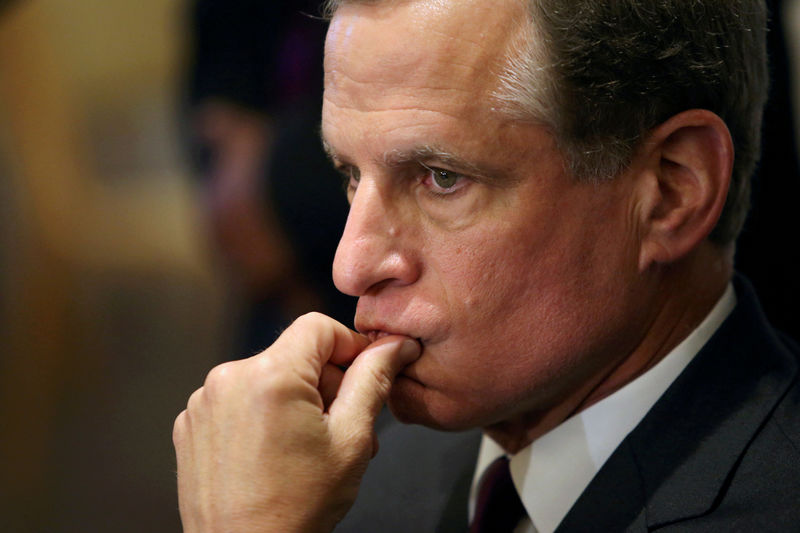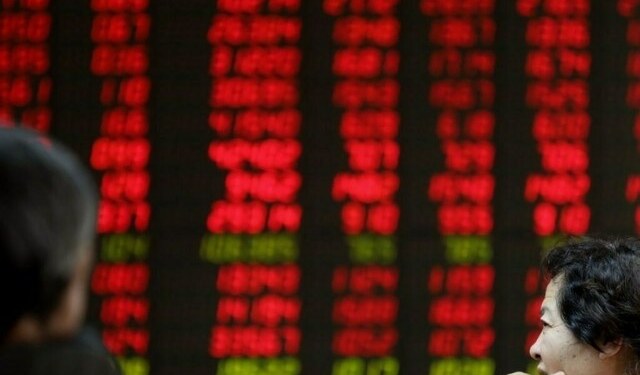 © Reuters. FILE PHOTO: Dallas Federal Reserve Bank President Robert Kaplan gestures during a news conference after of the True Economic Talks event in Mexico City
© Reuters. FILE PHOTO: Dallas Federal Reserve Bank President Robert Kaplan gestures during a news conference after of the True Economic Talks event in Mexico CityBy Jon Herskovitz and Ann Saphir
AUSTIN/KNOXVILLE, Tenn. (Reuters) – Federal Reserve officials on Friday said they want to see more details about new tariff policies before deciding whether any policy response is warranted, holding to their view that more interest rate hikes are needed.
The Trump administration on Thursday unveiled plans to raise tariffs on up to $60 billion of Chinese imports, although the measures have a 30-day consultation period before they take effect. China threatened retaliation.
New tariffs could create headaches for the Fed, which is tasked with fostering stable prices and full employment. New U.S. tariffs would boost prices for U.S. consumers while tariffs imposed by other countries could hurt U.S. exporters.
“I am concerned about it. It bears watching,” Dallas Federal Reserve Robert Kaplan told reporters in Austin when asked how new tariffs could impact the policy outlook. “I am going to counsel patience. From a policy point of view from the Fed, let’s see how this unfolds.”
Kaplan said recent threats about tariffs might be more a negotiating technique than a sign of future policy.
Atlanta Federal Reserve Bank President Raphael Bostic said a separate round of U.S. tariff hikes were not as extensive as initially thought.
“Don’t react to the first sound of a policy but actually wait to see what policy actually gets put in place,” Bostic said at the Knoxville Economic Forum, noting that steel and aluminum tariffs imposed by the Trump administration are being applied to a much smaller group of countries than when they were first announced.
The Fed’s recently installed chairman, Jerome Powell, said on Wednesday following a decision to raise interest rates that the central bank’s business contacts have expressed concern over trade tensions between the United States and other countries.
But Fed policymakers still haven’t changed their views on the economic outlook based on trade risks, Powell said.
The Fed has been slowly raising interest rates since 2015 and policymakers on Wednesday signaled they expected to increase rates twice more this year. Kaplan and Bostic each said they still expect three hikes will be warranted.
The current risks to the U.S. economy are about even but the Fed cannot “shrug off” risks of a trade war, Minneapolis Fed President Neel Kashkari told a Quinnipiac forum in New York.
“The worst case would be a trade war that triggers a crisis of confidence in the global economy,” he said, adding he was not predicting that.
Fusion Media or anyone involved with Fusion Media will not accept any liability for loss or damage as a result of reliance on the information including data, quotes, charts and buy/sell signals contained within this website. Please be fully informed regarding the risks and costs associated with trading the financial markets, it is one of the riskiest investment forms possible.
Source: Investing.com



























